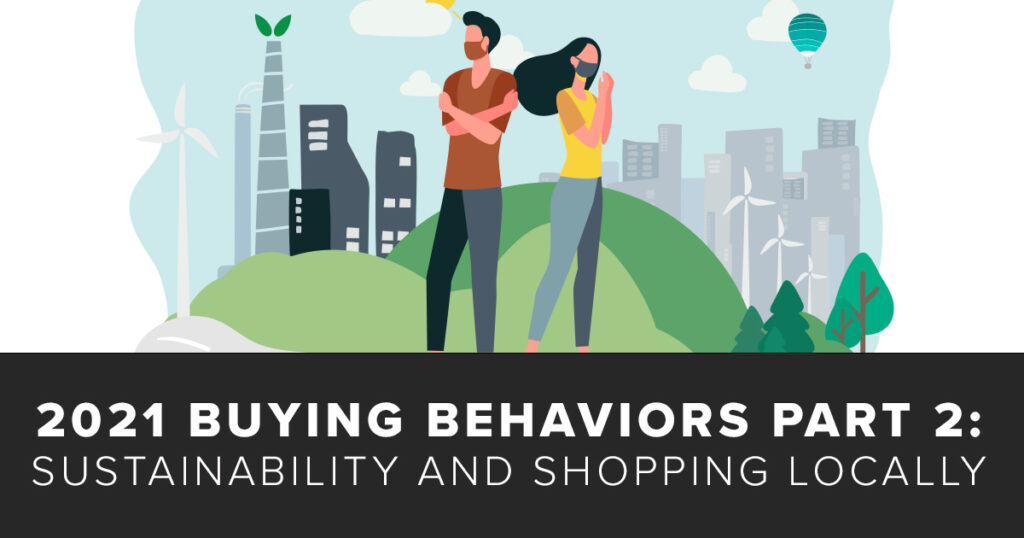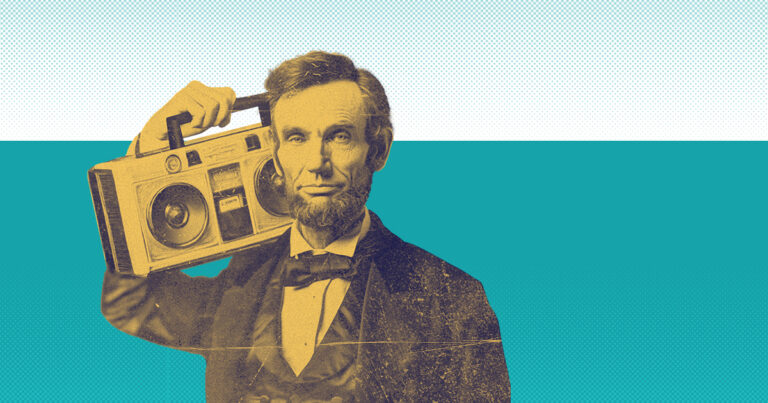Welcome to the second installment of our series of three blogs discussing major shifts in consumer behavior that have taken effect since the start of the COVID-19 pandemic. This week, we’re focusing on sustainability and the growing desire to shop locally.
Over the last year and into the start of 2021, consumers have shown an increased desire to shop consciously. They want purchases to be sustainable and cost friendly, and to produce less waste than alternative options. This shift in behavior is likely caused by an altruistic urge to take care of our local communities in difficult times. But even our most well-intentioned reactions can have unintentional (or perhaps, in this case, not) consequences: a wide range of companies are being put under the proverbial microscope based on their behavior throughout the pandemic.
The last year has seen the biggest transition of wealth in US history, with just 650 billionaires amassing “twice the amount of wealth held by the bottom 50% of all American households combined, approximately 160 million people.” In other words, while the top 1% of the United States (billionaires) have gained $1 trillion since the start of the pandemic, roughly 3 out of 10 small businesses likely will not make it through the year without additional help. That means over 9 million small businesses are at risk of closing for good. Communities are recognizing this struggle. In fact, “39% of U.S. consumers said they are more likely to buy from local or independent brands after the pandemic” (GlobalWebIndex).
At a time when nearly 7 million Americans are at risk of eviction, social responsibility from civilians and companies is extremely important and does not go unnoticed. Neither does any perceived inaction, indifference or hypocrisy. The Business and Human Rights Resource Center claims that times of struggle “expose a brand’s true culture that may have remained hidden from the public eye in normal times.” And increasingly, brand culture seems to be one of the most powerful driving forces for consumers.
Consumers are envisioning a world in which they work alongside businesses that share the goal of ensuring a healthy future. If companies don’t buy into this vision, consumers are kicking them off their team. In fact, 39% of consumers also said they will purchase more in the future from brands that responded well to the pandemic.
There are many ways that companies can show they are responding well to the COVID-19 crisis, from verbally encouraging social distancing, to publicly thanking front line workers, or making large donations to organizations in need. The following are example of companies doing their part to address the pandemic:
- Nike and Coca Cola both advertised in support for social distancing.
- Budweiser launched a campaign, “Save Pub Life,” that encourages people to buy gift cards to their favorite local pubs to use later. The company promised to match purchases in an effort to support local businesses.
- Krispy Kreme and Allbirds donated their products to health workers to show support for those on the frontlines of the pandemic.
While a shift towards sustainability may be difficult for your company to implement, it is most definitely possible: HP -named Energy Star Partner of the Year in 2020- is said to “continually develop, implement and scale programs and social investments with their sustainable impact strategy.” Other companies in the U.S. that rank high in sustainability include Texas Instruments, Best Buy, Cisco Systems, and Hasbro. Walmart is tackling the problem of food waste by embracing ugly or bruised produce by keeping it in the store longer instead of throwing it out. In an effort to restore our oceans, Shake Shack is collaborating with Restore Foodware to pilot aircarbon cutlery and aluminum water bottles to help eliminate single use plastics in select locations.
Perhaps unsurprisingly, top buying factors for consumers include: healthy and hygienic packaging, how companies take care of the safety of their employees, promotion of sustainable solutions, sustainable/eco-friendly products, and companies’ stated purpose or values. In fact, “21% of U.S. consumers are researching brand and product choices before buying.” (McKinsey)
The growing consumer concern aground packaging is due to a desire to minimize yearly waste production. In 2018, waste from containers and packaging amounted to 82.2 million tons. To combat this, companies like ASOS, Patagonia, Calvin Klein and Allbirds are using sustainable packaging for their product shipments.
What does this mean?
This may sound like a lot to worry about, or maybe just another hurdle that COVID has set for your company to clear. But the reality of the situation is that there is an advantage to be gained in how you choose to move forward. Companies that are working alongside consumers and taking a proactive, charitable approach to improving the environmental impact of their business, and the economic well-being of struggling communities, stand to gain a loyal and enthusiastic following among consumers who are eager to promote change. People want companies to share their values. And they are rewarding forward-thinking companies with their business.
That’s it for our second installment on consumer behavior. Comment below, or on our Facebook or Instagram page, to let us know what you think. And stay on top of shifting marketing trends by keeping up with our Esparza blog. Remember to support local and buy sustainable, and look out for the third and final installment in our Buying Behaviors series.












